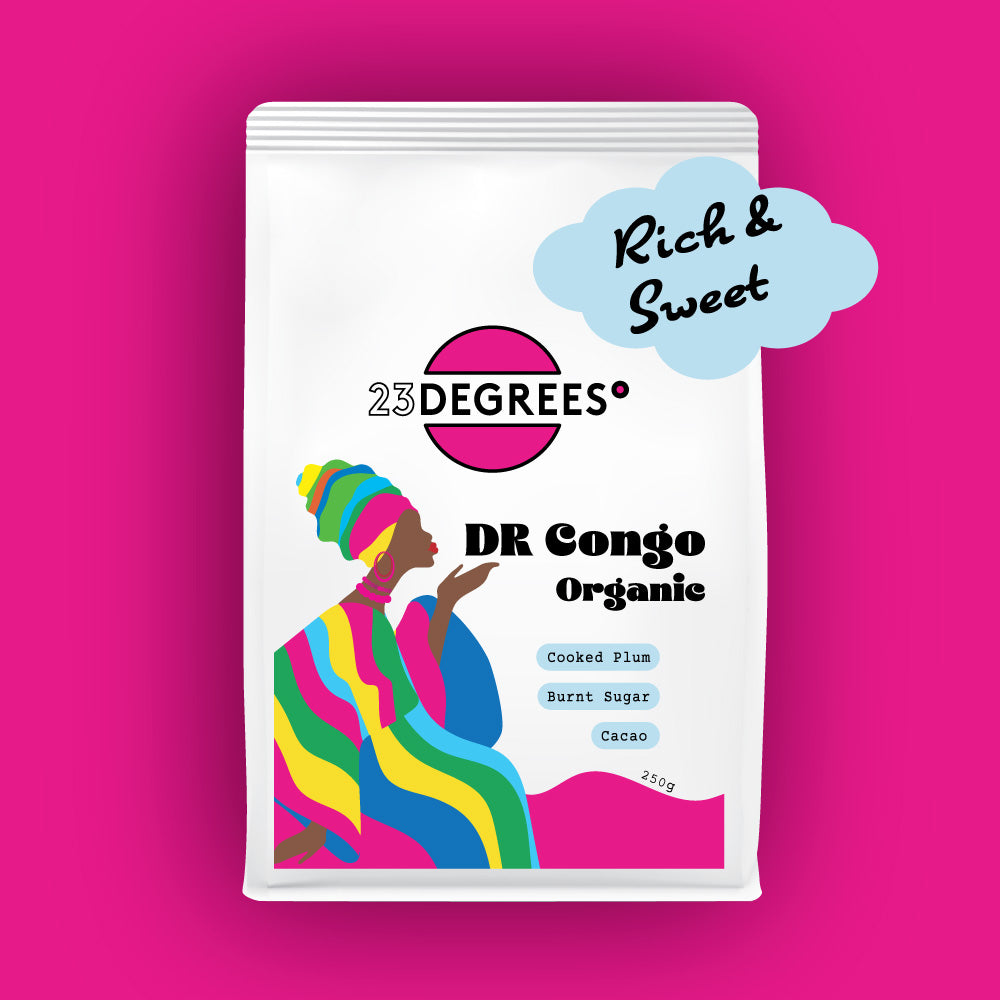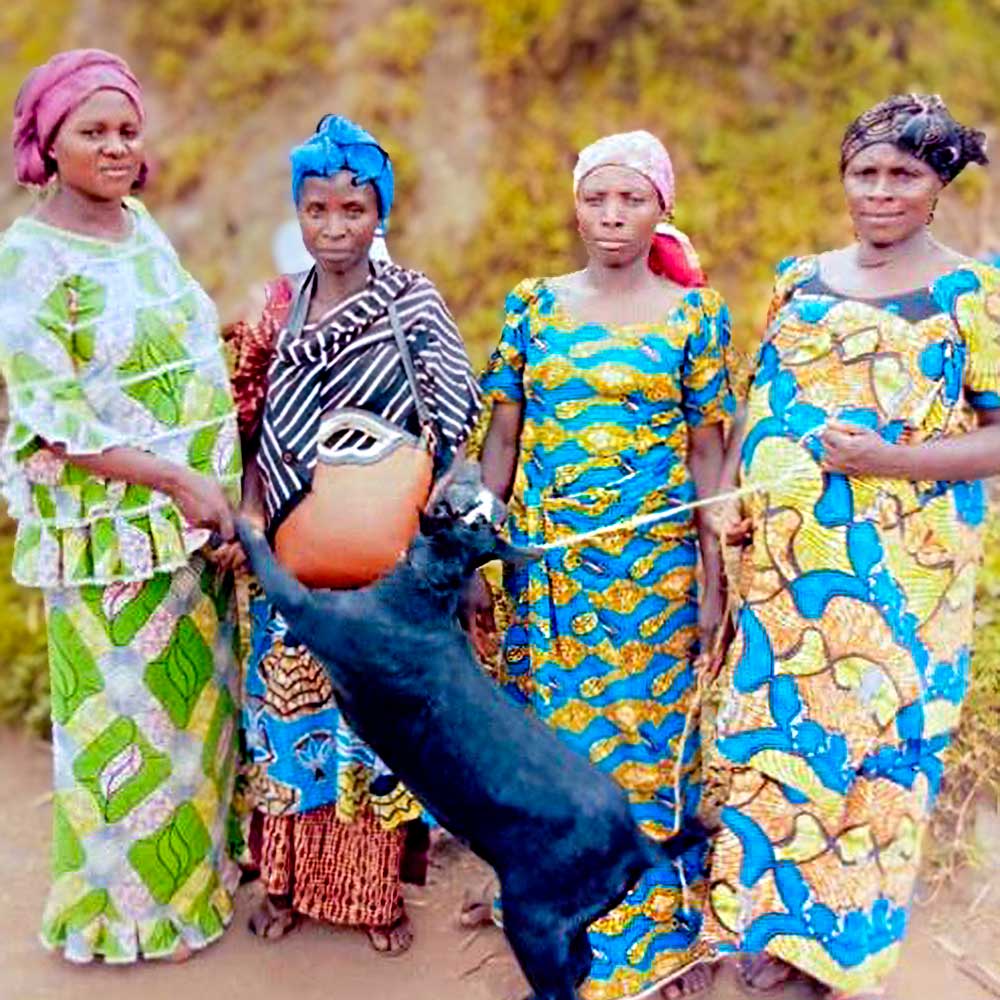

More amazing stuff to know.
About this coffee.
- Grower: 51 Women Coffee Growers, SOPACDI
- Origin: DR Congo, Lake Kivu, Villages Mishebere and Ruhunde
- Processing method: Washed
- Varietal: Arabica (Bourbon, Caturra, Catuai)
- Altitude: 1600 - 1800 MASL
Try our brew recipe. Or create your own.
Recipe
Dose: 22g
Yield: 44g
Extraction ratio: 1 : 2
Extraction time: 28 - 32 seconds
Water temperature: 93.5oC
About the recipe
We used the Victoria Arduino Eagle One Prima and the Mythos MYG75 grinder to create this recipe for you. Try to replicate this recipe on your equipment or create your very own.
The dose is the amount of ground coffee that goes into the filter basket of your portafilter. Filter baskets come in different sizes. The size of your portafilter determines how much coffee (fill weight) it can hold. You don’t want to overfill or underfill the basket, as it will compromise the extraction.
The yield is how much delicious coffee you extract or, in order words, ends up in your cup.
And because you may have a different basket size than ours, you want to use a yield based on your dose and the given extraction ratio.
The extraction time tells you if the water has enough time to extract all the tasty goodness in the coffee. Adjusting your grind size will help you to achieve the suggested time in our recipe. You want to grind finer if you extract a yield in a shorter time. And grind coarser if you achieve the yield in a longer time than suggested.
Join our training courses.
Want to learn more about how to extract a tasty espresso? Join us for a fun and hands-on coffee course at our roastery.

Inspiring.
SOPACDI's Women Coffee Growers Project
These specific offerings come from a group of 51 pygmy women who live and farm in the villages of Mishebere and Ruhunde in the Kahele territory. Historically, Pygmy people have faced much discrimination. SOPACDI has started this project to source and keep separate coffee from this group of growers in order to provide them with a better income from specialty coffee as well as more financial independence and autonomy. The producers each own an average of 0.5 hectares and deliver coffee in cherry form to the washing station. There is a price premium paid directly to these women farmers to use as they see fit. We think this is amazing.





